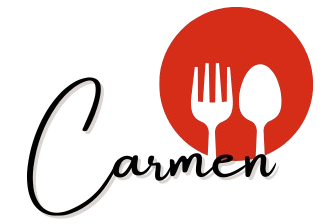
Kielbasa, a traditional Polish sausage, has earned its place in many kitchens worldwide for its rich flavors and versatility. But as a high-calorie, processed meat, many wonder if it can fit into a healthy lifestyle. This article dives into the nutritional profile of kielbasa, its health benefits and risks, and practical ways to include it in a balanced diet.
What is Kielbasa?
Kielbasa refers to various types of Polish sausage, traditionally made with pork, though it can include beef, chicken, or turkey. Kielbasa comes in different forms, such as fresh, smoked, and cured, each offering a unique taste and texture. This sausage is typically seasoned with garlic, marjoram, and other spices, which contribute to its distinct flavor profile. For ideas on seasoning and cooking, explore do you season kielbasa.
Nutritional Profile of Kielbasa
To understand if kielbasa can be a healthy option, let’s look at its nutritional content in a typical 100g serving:
- Calories: About 325 calories, making it calorie-dense.
- Protein: 26g, supporting muscle development and tissue repair.
- Fat: 26g, including around 9g of saturated fat.
- Sodium: Up to 1,100mg, a significant portion of the daily recommended intake.
- Vitamins and Minerals:
- Vitamin B12: Essential for red blood cell formation and energy metabolism.
- Iron: Vital for oxygen transportation in the body.
- Selenium: An antioxidant that supports immune health.
Kielbasa offers substantial protein and nutrients, but its high sodium and saturated fat content can raise concerns. For storage tips to retain its quality, check out how long does cooked kielbasa last in the fridge.
Comparing Kielbasa to Other Sausages
When comparing kielbasa to other sausages, it’s essential to examine factors like fat, sodium, and nutrient density.
- Italian Sausage: Generally lower in sodium but may have similar fat content.
- Bratwurst: Slightly lower in saturated fat, though nutrient profiles vary based on ingredients.
- Turkey or Chicken Sausages: These can offer a leaner alternative with reduced fat, making them preferable for those monitoring cholesterol.
Health Benefits of Kielbasa
Despite some nutritional concerns, kielbasa does have certain benefits when consumed in moderation:
- High Protein Content: Kielbasa provides around 26g of protein per serving, which aids in muscle maintenance and body repair.
- Rich in B Vitamins: Kielbasa contains B vitamins, including B12, which supports energy levels, red blood cell production, and nerve function.
- Selenium: This antioxidant protects cells from damage and boosts immune function.
With these nutrients, kielbasa can contribute positively to a well-rounded diet if eaten occasionally.
Health Concerns with Regular Kielbasa Consumption
Though kielbasa has health benefits, there are some critical nutritional concerns to consider:
1. High Sodium Content
Each serving of kielbasa can contain up to half of the recommended daily sodium intake. Excessive sodium consumption may contribute to high blood pressure, which can increase the risk of cardiovascular issues. For those seeking to lower sodium intake, it’s beneficial to check out this guide to reducing sodium intake.
2. Saturated Fat
With approximately 9g of saturated fat per 100g serving, kielbasa can raise LDL cholesterol levels if eaten frequently. High LDL cholesterol is linked to heart disease, making it advisable to limit intake or opt for leaner alternatives.
3. Preservatives and Additives
Some commercial kielbasa products contain nitrates and other preservatives, which have been associated with health risks when consumed in large amounts. Opting for nitrate-free or minimally processed kielbasa can help reduce these risks.
Is Kielbasa Good for Weight Management?
While kielbasa can fit into a balanced diet, it’s relatively high in calories and fat, so portion control is crucial for those watching their weight. Here’s how to include kielbasa in a calorie-conscious way:
- Caloric Density: With about 325 calories per 100g, it’s easy to consume a significant amount of calories without realizing it.
- Balancing with Low-Calorie Sides: Pair kielbasa with fiber-rich vegetables or whole grains to create a filling meal without excess calories.
Kielbasa and Specific Diets
Depending on your dietary plan, kielbasa can be adjusted to fit in. Here’s how it fits various popular diets:
- Low-Carb and Keto Diets: Kielbasa’s high protein and fat content make it suitable for low-carb and keto diets. However, it’s essential to select low-sodium varieties when possible.
- Heart-Healthy Diets: If heart health is a priority, opt for turkey or chicken kielbasa, which have less saturated fat and sodium.
- Gluten-Free Diets: Kielbasa is generally gluten-free, but checking labels for additives is always recommended.
Making Kielbasa Healthier
If you enjoy kielbasa and want to make it healthier, consider these adjustments:
- Choose Leaner Varieties: Turkey and chicken kielbasa are lower in fat and calories.
- Cooking Methods:
- Grilling or baking can minimize added fats.
- Boiling helps drain excess fats, reducing overall fat content.
- Limit Additives: Opt for brands that use minimal preservatives and are nitrate-free when possible.
Tips for Incorporating Kielbasa into a Balanced Diet
For those who want to enjoy kielbasa without overindulging, these tips can help:
- Pair with Nutrient-Dense Foods: Balance kielbasa’s rich flavor by serving it with vegetables or whole grains, which add fiber and nutrients.
- Control Portions: Enjoy smaller servings to get the taste without overloading on calories.
- Occasional Treat: Make kielbasa an occasional part of your diet rather than a regular staple to reduce health risks.
For more pairing ideas, visit what goes best with kielbasa.
FAQs
Is kielbasa healthier than bacon? Yes, kielbasa generally has more protein and fewer nitrates, though it contains more sodium than bacon.
How often should I eat kielbasa? Kielbasa is best enjoyed in moderation, ideally once or twice a month to limit sodium and fat intake.
Can kielbasa be part of a heart-healthy diet? Yes, if you choose leaner varieties, control portions, and pair it with low-sodium foods.
What is the healthiest type of kielbasa? Turkey or chicken kielbasa are healthier options due to lower saturated fat and cholesterol.
Does kielbasa have any beneficial nutrients? Yes, it provides protein, B vitamins, and selenium, supporting various health aspects.
Conclusion
Kielbasa can be a tasty addition to a balanced diet, but it’s essential to monitor portions and frequency due to its sodium and saturated fat content. For those who enjoy it occasionally, choosing leaner versions, practicing mindful portion control, and pairing with nutrient-rich sides can help maintain a healthy diet. Visit Carmen Recipes for more cooking tips and to explore related guides, like what goes best with kielbasa and how long does cooked kielbasa last in the fridge.
